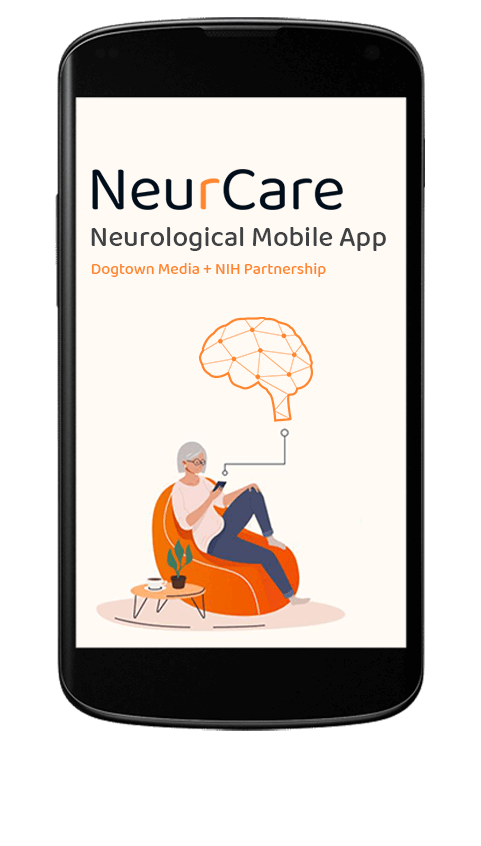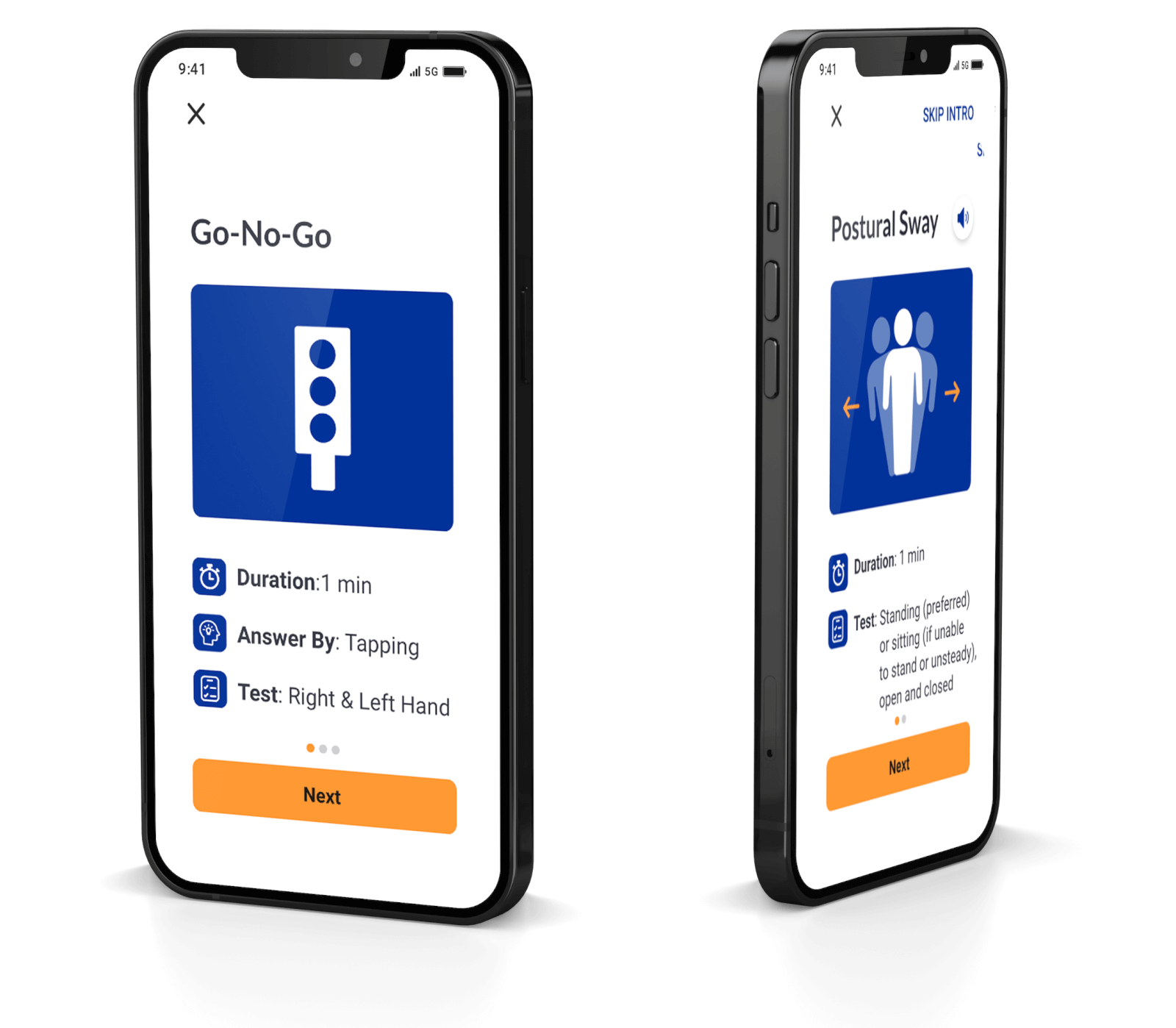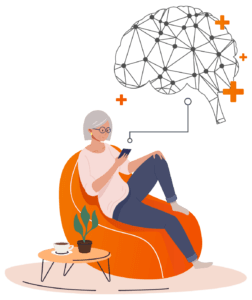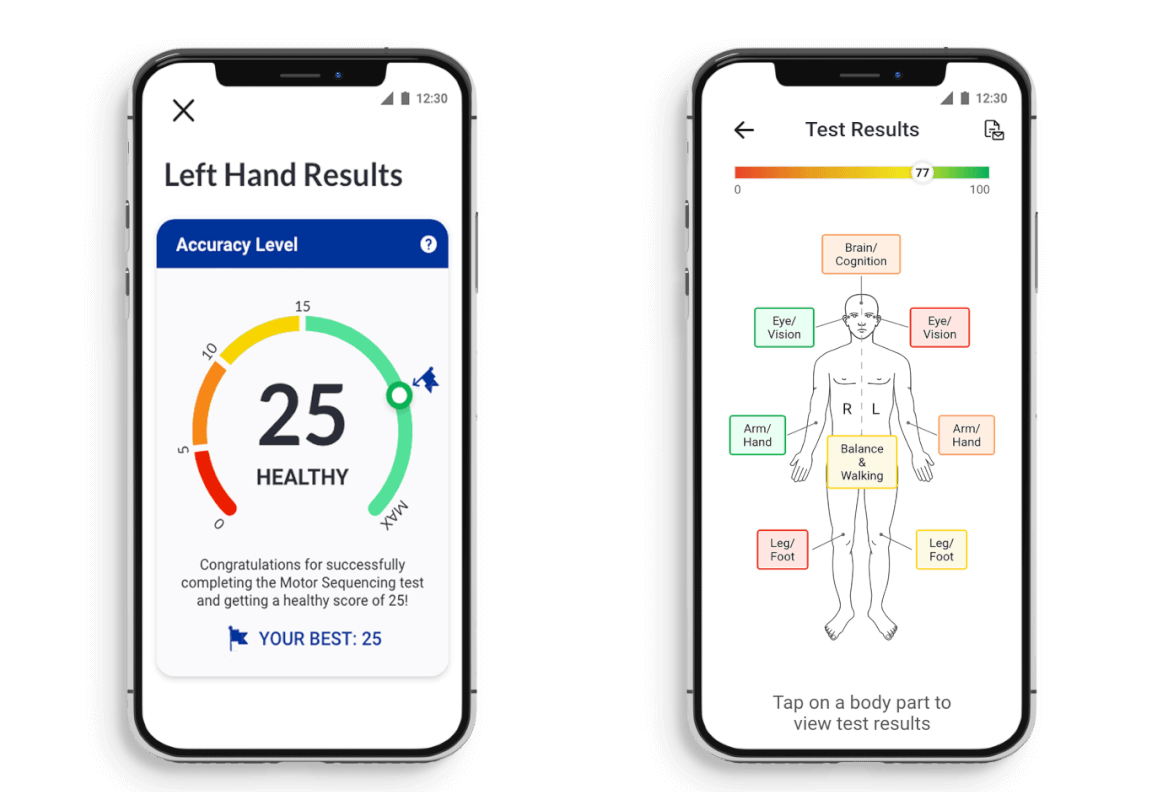National Institutes of Health (NIH)
Built for Android

The Challenge
There is currently a shortage of neurologists in the U.S. which is predicted to worsen as the nation’s elderly population continues to increase. In addition, many neurological patients find it difficult to travel to their appointments and this situation has only worsened during the Covid-19 pandemic. Currently, there are no mobile apps for remotely monitoring neurological patients that have been clinically tested.
The Process

The Solution
The National Institutes of Health (NIH) partnered with Dogtown Media for the development of a mobile app NeurCare, to remotely monitor patients with neurological disorders including Multiple Sclerosis, Parkinson’s, Hodgkin’s and Alzheimer’s. NeurCare consists of sixteen tests that measure cognitive, motoric, cerebellar, and sensory functions.
Initial clinical testing has demonstrated statistically significant correlations between in-person exams and the results from selected NeurCare tests.
NeurCare was designed to be easily accessible to a wide range of neurological patients. In addition, easy-to-follow instructions are provided for each test. Also, based on a patient’s abilities, all the tests can be prescribed or just a subset.
All patient data is streamed to a backend platform for machine-learning analysis that can help to diagnose a patient’s condition and if they need to schedule an in-person appointment.
This app includes:
- 16 tests that measure cognitive, motoric, cerebellar and sensory functions.
- All test results are streamed to a HIPAA compliant backend system.
- Motivational feedback – patient test results are displayed after each test and compared to their personal best score and to age-related normative results.
- Push notifications provide reminders for taking tests.
- Comprehensive instructions for each test along with videos.
- A health dashboard provides easy-to-understand overview of the patients test results.

The Result
Clinical Trials – pharma companies can reliably measure neurological functions longitudinally during clinical trials.
- Assist healthcare professionals in detecting early signs and symptoms of neurotoxicity in post-infusion CAR-T patients.
- Hospitals can have more confidence in the post-discharge setting by providing the ability remotely monitor the patient’s condition.
- Clinical testing has demonstrated statistically significant correlations between in-person exams and selected NeurCare results.
